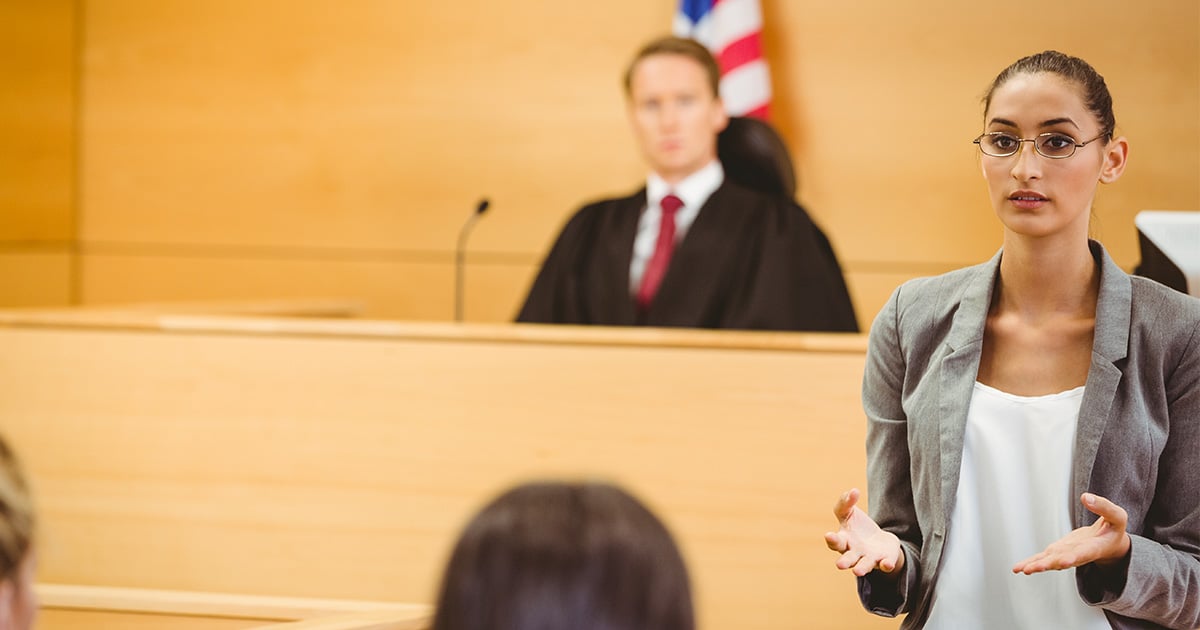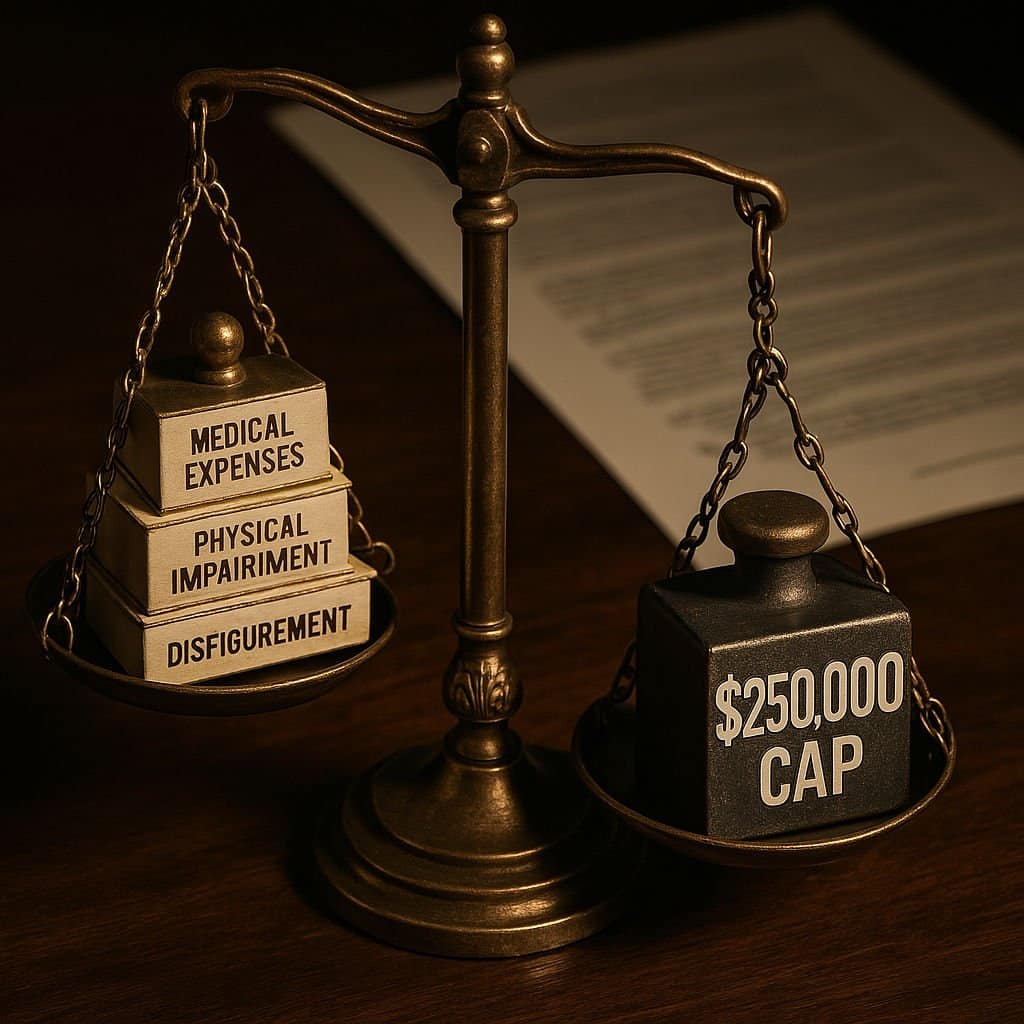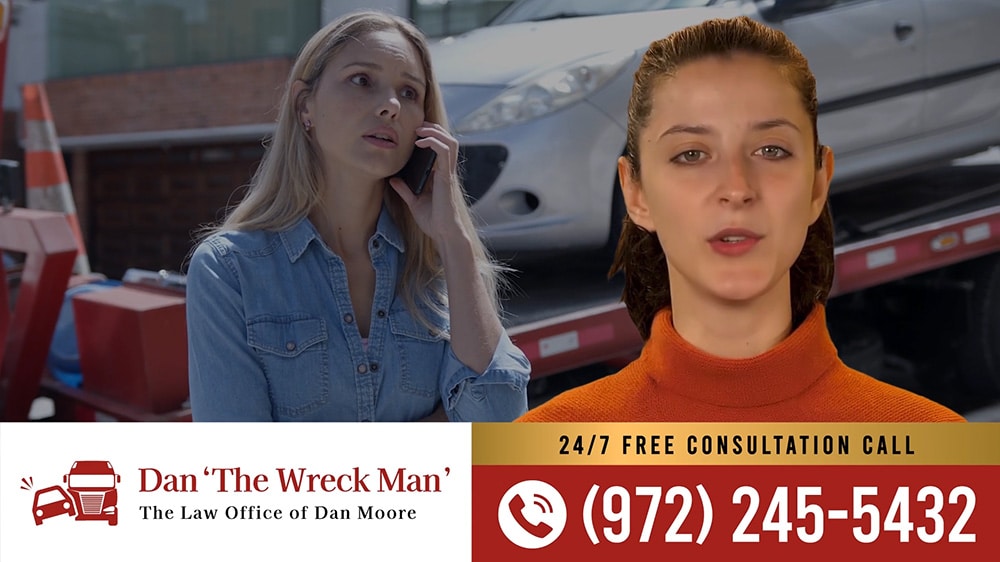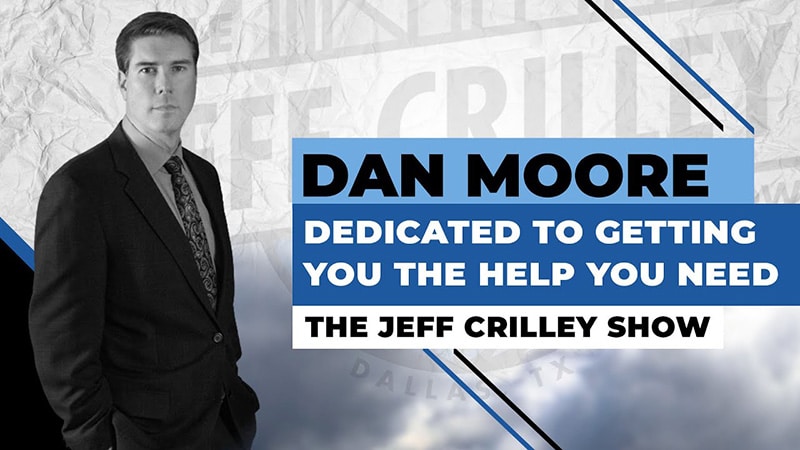Preventing hearsay testimony in a personal injury lawsuit is important because hearsay evidence is generally not admissible in court.
What is Hearsay Testimony?
Hearsay Testimony is an out-of-court statement offered for the truth of the matter asserted, and it is considered unreliable because the original declarant is not available for cross-examination.
For example, to illustrate that Tom was present in the city, a witness might state that Susan informed them of Tom’s location. However, if Susan isn’t present in court to face questioning, the witness’s account is considered hearsay because it’s based on information Susan provided outside of court. The issue here is the absent party cannot be cross-examined.
But if the relevance is not whether Tom was actually in town, but rather that Susan claimed he was, the testimony could be admissible. Let’s say Susan is being sued for defamation; in this case, it might be pertinent to question the witness about Susan’s exact words concerning Tom since this is about the statement itself as an action.
Hearsay testimony is a complex topic within the legal system, and its admissibility continues to be a subject of ongoing debate. While there are valid arguments for both its utility and potential drawbacks, it is crucial for the justice system to strike a balance between safeguarding the rights of the accused and ensuring that relevant information is considered in the pursuit of truth and justice.
Statistical Insights
According to a study conducted by the National Registry of Exonerations, hearsay testimony played a significant role in 76% of wrongful convictions overturned by DNA evidence. This statistic highlights the potential pitfalls of relying excessively on hearsay in legal proceedings. (Source: National Registry of Exonerations)
A report by the United States Department of Justice reveals that in more than half of criminal cases, hearsay is the most common type of evidence presented. (Source: United States Department of Justice)
The Impact of Hearsay Testimony
Hearsay testimony can have both positive and negative implications for legal cases. While some argue that introducing hearsay can help uncover crucial information and lead to justice, opponents highlight its potential for providing unreliable, untested, or false information.
Pros of Hearsay Testimony
Broadening Access to Information: Hearsay testimony can offer valuable information when direct witnesses may be unavailable, unwilling to testify, or deceased.
Protecting Vulnerable Individuals: In cases involving child abuse, domestic violence, or intimidation, hearsay testimony can safeguard victim confidentiality and allow their voices to be heard without re-traumatization.
Cons of Hearsay Testimony
Reliability and Accuracy Concerns: The lack of cross-examination can increase the likelihood of inaccuracies, misunderstandings, or outright falsehoods being presented as evidence.
Violation of Confrontation Clause: The Confrontation Clause of the Sixth Amendment guarantees the right of an accused person to confront their accusers. Allowing hearsay testimony may infringe upon this fundamental right.
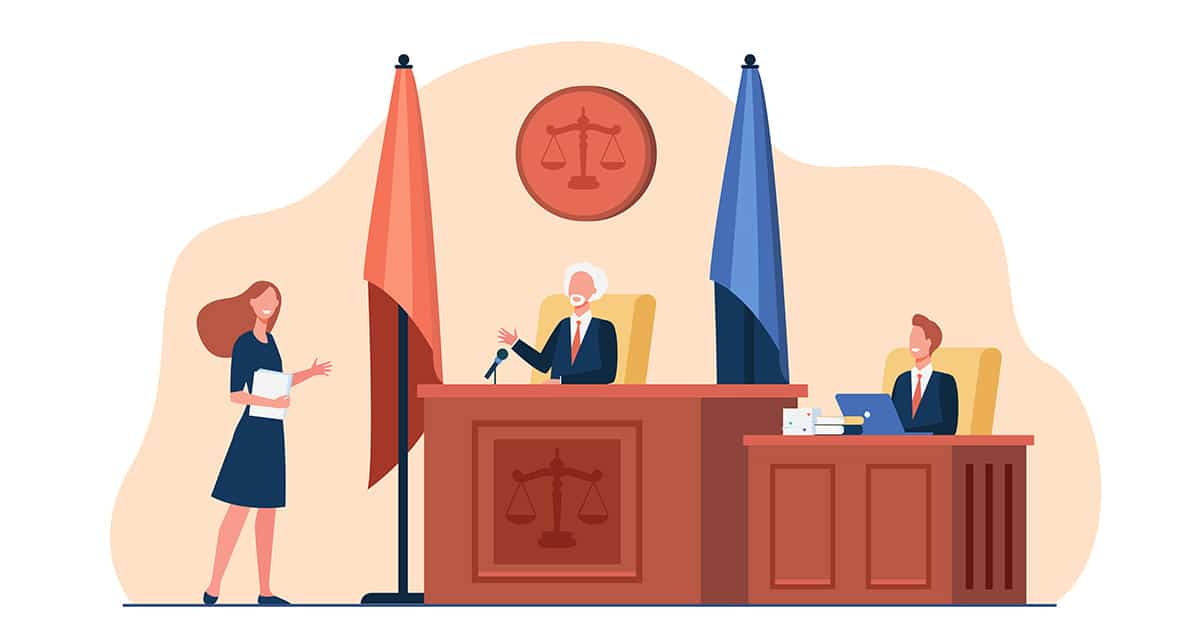
Why We Should Prevent Hearsay Testimony in the Court?
Preventing hearsay testimony in court is essential for ensuring a fair and just legal system for several reasons:
- Reliability and Accuracy: Hearsay testimony is secondhand information relayed by someone who may not have firsthand knowledge of the events they are testifying about. This introduces the possibility of inaccuracies, misunderstandings, or deliberate falsehoods being presented as evidence. The lack of an opportunity to cross-examine the original declarant further undermines the credibility and reliability of hearsay testimony.
- Confrontation Clause and Right to Cross-Examination: The Confrontation Clause of the Sixth Amendment guarantees an accused person’s right to confront their accusers. Allowing hearsay testimony can potentially infringe upon this fundamental right by depriving the accused of the opportunity to cross-examine the original declarant and challenge the credibility and accuracy of their statements.
- Due Process and Fair Trial: Preventing hearsay testimony is crucial to uphold the principles of due process and ensure a fair trial. Allowing hearsay evidence without the opportunity for cross-examination can create an imbalanced playing field, where the accused is unable to challenge or test the veracity of the statements made by absent witnesses. This undermines the integrity and reliability of the trial process.
- Presumption of Innocence: Hearsay testimony can pose a significant risk to the presumption of innocence. By allowing untested and potentially unreliable evidence, the accused’s right to be presumed innocent until proven guilty may be compromised. Hearsay evidence can unduly influence judge or jury decisions, leading to wrongful convictions based on subjective and unverified statements.
- Importance of Direct Evidence: Direct evidence, where witnesses testify to facts within their own knowledge, carries more weight and credibility compared to hearsay testimony. Central to a fair trial is the presentation and evaluation of direct evidence, which allows for the verification and examination of the witness’s firsthand knowledge and credibility.
Ultimately, preventing hearsay testimony in court is crucial for maintaining the integrity of the legal system, upholding the principles of fairness and due process, and ensuring that the accused receives a fair trial where the evidence presented is reliable, thoroughly tested, and subject to cross-examination.
Strategies To Prevent Hearsay Testimony in a Personal Injury Lawsuit
1. Understand What Constitutes Hearsay Testimony
Familiarize yourself with the rules of evidence in your jurisdiction to have a clear understanding of what constitutes hearsay. Generally, hearsay includes statements made outside of the courtroom that are offered in court to prove the truth of the matter they assert.
2. Object Promptly
If opposing counsel or a witness attempts to introduce hearsay evidence, object promptly. You can say something like, “Objection, Your Honor, that statement is hearsay.” It’s essential to object at the right time to preserve the issue for appeal.
3. Know the Exceptions
While hearsay testimony is generally inadmissible, there are many exceptions where hearsay evidence may be allowed. Familiarize yourself with these exceptions in your jurisdiction, and be prepared to argue for or against their applicability as needed.
4. Authenticate Documents
If you intend to introduce documents as evidence, ensure they are properly authenticated. This typically involves having a witness testify about the document’s origin, how it was created, and its accuracy.
5. Call Witnesses With Personal Knowledge
Encourage the use of witnesses who have personal knowledge of the events in question. Such witnesses can testify to their own observations and experiences rather than relaying what they heard from others.
6. Depose Witnesses and Gather Evidence
During the discovery process, depose witnesses and gather evidence that can help you present a strong case without relying on hearsay testimony. This may involve obtaining affidavits or recorded statements from witnesses who cannot testify in person.
7. Challenge the Credibility of Declarants
If the opposing party attempts to introduce hearsay testimony, you can challenge the credibility of the declarant (the person who made the out-of-court statement) to argue that their statement should not be admitted.
8. Present a Hearsay Analysis to the Court
If you anticipate that hearsay issues may arise during the trial, prepare a legal memorandum or argument outlining the reasons why certain statements should be excluded as hearsay. Present this to the court before or during the trial.
9. Work With Your Attorney
Your attorney should be well-versed in the rules of evidence and can help you identify and address hearsay issues. Work closely with your attorney to develop a strategy for handling hearsay testimony.
Remember that the rules of evidence and the admissibility of hearsay may vary by jurisdiction and can be complex. It’s crucial to consult with an experienced attorney who can provide guidance specific to your case and jurisdiction. You should always be represented by counsel in a personal injury case to prevent hearsay from becoming evidence in your case.
Contact The Wreck Man at 888-2-WRECKMAN to ensure your rights are protected and you receive maximum compensation for your injuries.
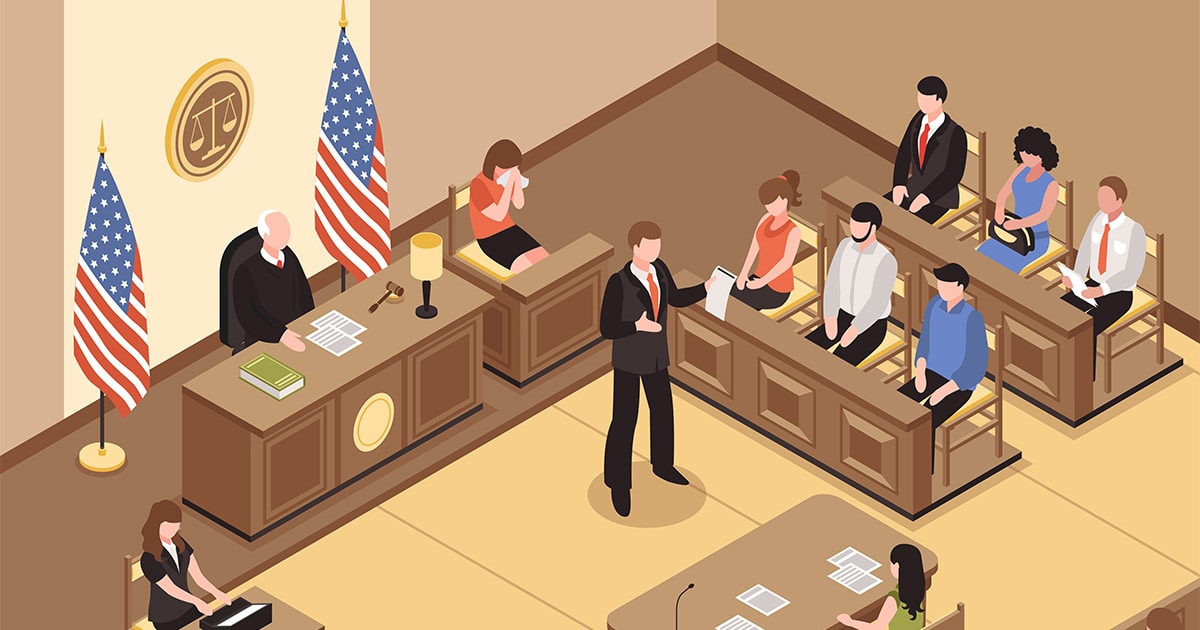
How Can Hearsay Evidence Admitted in a Personal Injury Case Hurt Your Case?
Hearsay evidence can potentially hurt your personal injury case in several ways:
- Lack of credibility: Hearsay evidence is typically considered less credible because it involves statements made by someone who is not testifying in court. The person making the statement may not be subject to cross-examination, which makes it difficult to assess their reliability or the accuracy of their statement.
- Inadmissibility: In many legal jurisdictions, hearsay evidence is not admissible in court unless it falls under a recognized exception. If the hearsay evidence is improperly admitted, it may be grounds for an appeal or a mistrial, which could delay or complicate your case.
- Weakened impact: Hearsay evidence may not carry the same weight as firsthand testimony or direct evidence. Jurors and judges may give less consideration to hearsay statements when assessing the facts of the case, potentially undermining your arguments.
- Limited ability to challenge: When hearsay evidence is introduced, it can be challenging for your attorney to effectively cross-examine the person who made the statement, as they may not be present in court. This limitation can hinder your ability to challenge the accuracy or credibility of the statement.
- Unreliable sources: Hearsay statements can come from sources that may have a bias or motive to misrepresent the facts. For example, statements from friends or family members of the injured party may be seen as less reliable due to their personal connection and potential bias.
- Confusion and complexity: Hearsay evidence can add complexity to a case, as attorneys may need to argue about its admissibility, relevance, and exceptions. This can make the legal proceedings more convoluted and harder for a jury to follow.
To protect your personal injury case from the potential negative effects of hearsay evidence, it’s essential to work closely with an experienced personal injury attorney who can help identify and address these issues. Your attorney can object to the admission of hearsay evidence when appropriate and present a strong case based on admissible and reliable evidence.
Free Consultation with The Wreck Man on Personal Injury Lawsuit
Contact The Wreck Man at 888-2-WRECKMAN to ensure your rights are protected and you receive maximum compensation for your injuries.
The Wreck Man can ensure the right evidence is introduced in your case and exclude the wrong evidence, especially unfounded hearsay evidence. The Wreck Man expedites settlement and case closure and minimizes case expenses to ensure clients receive the maximum amount of compensation for their injuries, medical expenses, lost wages, property damages, and pain and suffering.
Famously known as “The Wreck Man” personal injury attorney, Dan Moore, has been “wrecking” insurance companies on behalf of car & truck accident victims, for over 12 years, championing “the injured” against major corporations and big insurance companies who regularly deny their claims and legal rights.
The Wreck Man wrecks insurance companies and their effort to settle your case for far less than you may be due in compensation. Today, Dan Moore has his own office building in downtown Carrollton, TX and handles big accident cases for a variety of clients all over Texas. The experienced and competent accident attorneys at Dan Moore Law share Dan’s mission of helping injured Texans and Oklahoman’s get the money they deserve from those who were at fault and their insurance carriers.
